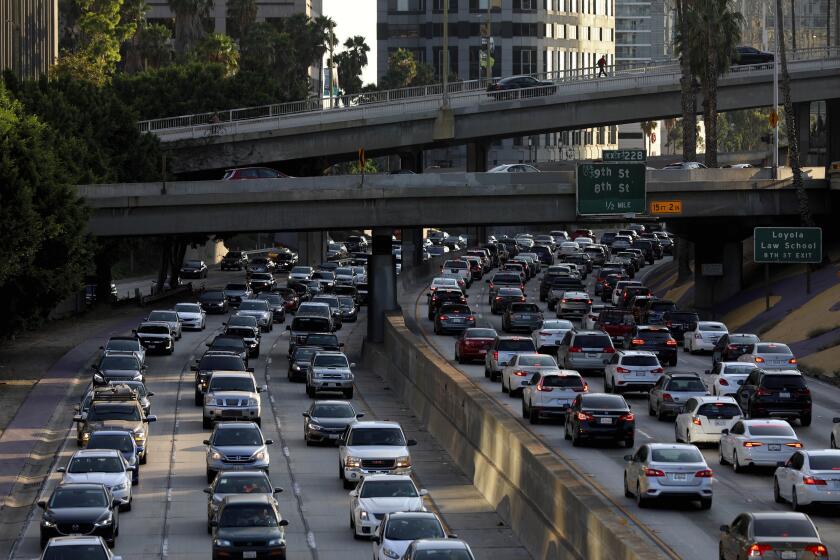No Chiron Warning, FDA Says
- Share via
The head of the Food and Drug Administration defended the beleaguered agency Monday, saying it had received no warning from British regulators or from Chiron Corp. that the company’s flu vaccine factory in Liverpool was in danger of being shut down.
Acting FDA Commissioner Lester Crawford said closure of the factory by British authorities showed the need for better communication with European regulators.
Last Tuesday, Britain’s Medicines and Healthcare Products Regulatory Agency shuttered the Chiron factory for three months, citing manufacturing problems that could lead to bacterial contamination. The action meant that Chiron, based in Emeryville, Calif., couldn’t deliver the more than 40 million doses that had been ordered, nearly half of the supply for the U.S.
Because of the shortage, public health officials throughout the nation are rationing vaccine supplies. Healthy people are being asked to skip shots so that people who are at greater risk if they contract the flu -- the elderly, young children and those with chronic medical conditions -- can get them.
Crawford said at a news conference Monday that the unexpected action by British authorities was a “test case” for better information-sharing with European drug industry regulators. He said an agency such as the World Health Organization might hash out rules for swapping details on regulatory matters that were typically considered proprietary.
“We intend to pursue that,” he said.
Crawford acknowledged that the FDA hadn’t made an effort to talk with British regulators about the Chiron factory since Aug. 25, when the firm reported it had discovered 4 million doses of contaminated vaccine.
After the contamination report, he said, the FDA received weekly progress reports from Chiron. The company didn’t indicate that the factory was in danger of being closed, he said. Based on its conversations with Chiron, the FDA assumed it was “proceeding in the same direction” as British regulators.
Crawford said that it wasn’t “the usual case ... for countries to go back and forth” on regulatory matters. In relying on weekly updates from Chiron, he said, the FDA “followed standard procedures.”
A Chiron spokesman Monday reiterated the company’s earlier comments that the plant closure by British regulators was “completely unexpected.” In fact, five days before authorities in Britain suspended Chiron’s license to operate the vaccine plant, company Chief Executive Howard Pien told a congressional committee that Chiron would deliver more than 40 million doses of vaccine to the U.S. this flu season.
After the British government’s actions, the FDA dispatched five officials to inspect Chiron’s plant. Crawford said the FDA team probably would complete its report this week, but was pessimistic that any vaccine could be cleared for use.
“If the FDA and the MHPR disagree, can we get it from England?” Crawford asked. “I can’t envision that happening.”
The plant has a history of problems.
Crawford said the FDA had inspected the facility in June 2003, shortly after Chiron acquired it as part of its $878-million purchase of British drug maker PowderJect.
Inspectors found a “higher than expected level of bacteria” on that visit and discussed their findings with Chiron, which took steps to correct the problems, Crawford said.
The bacterial contamination found in 2003 was traced to the early steps in the vaccine production process before sterilization, he said. Because flu vaccine is produced in chicken eggs, which aren’t sterile, contamination in the early stages is a risk.
Crawford said Chiron’s current manufacturing problems were more serious because the vaccine became contaminated near the end of the production process.






